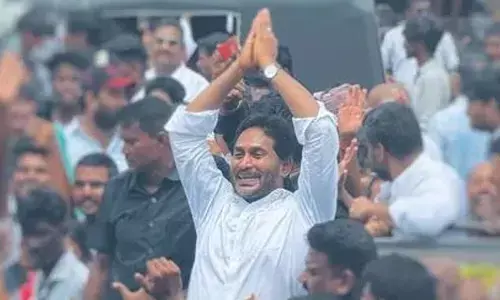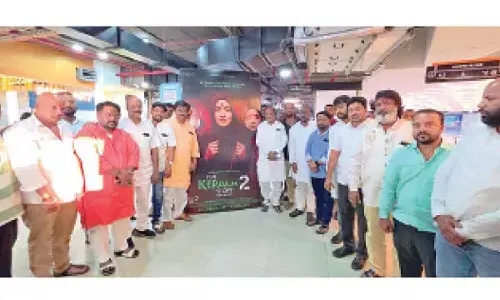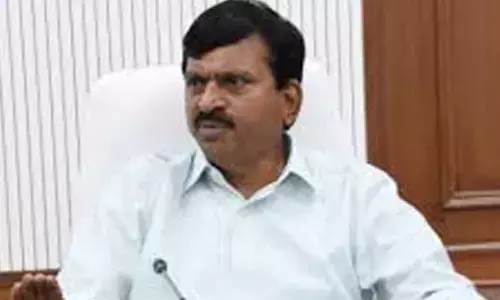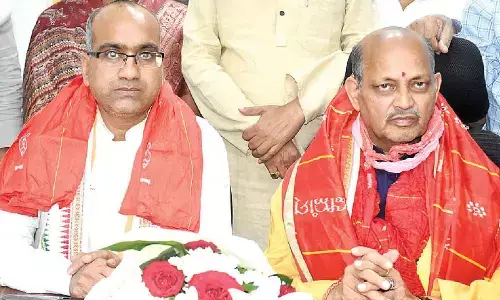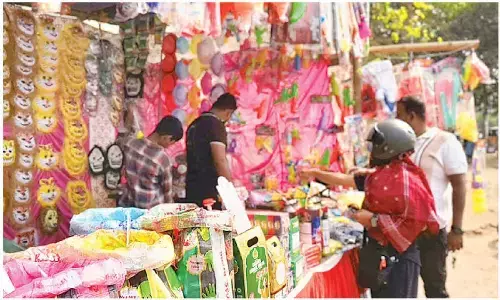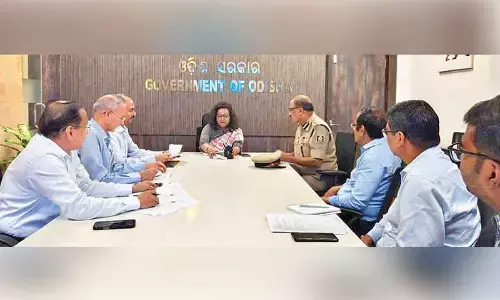Patients are owners of medical records

Thousands of medical records of hundreds of patients stocked in the hospitals would not serve any purpose, unless institution wanted for research. Such records will occupy huge space and need to be removed at some point of time. Instead, the medical information if shared with the patient, it would help the patient or his relatives to understand the problem he was suffering from and the experts or
Thousands of medical records of hundreds of patients stocked in the hospitals would not serve any purpose, unless institution wanted for research. Such records will occupy huge space and need to be removed at some point of time. Instead, the medical information if shared with the patient, it would help the patient or his relatives to understand the problem he was suffering from and the experts or neutral persons to verify the process of treatment, when necessary. Like the immovable property transfer is recorded by registration for verification, the treatment is also recorded for the same purpose.
The hospital can retain records for research into trends and responses to their treatment. But how many hospitals are doing it. Sharing of the information with patients will not affect their research anyway. Or, they can digitise the records and can refer when patient comes again with any health problem. Are they doing it?
The patient is the owner of the information generated for him at his instance and on his payment. The body fluids of the person are tested and analysed, thus the source material of diagnostic test is the body of the patient. That has to be the property of the patient. Rightly, the diagnostic centers share the information without any objection. Soft copies are made accessible with a password based on the bill of payment. Except patient, doctor, well-wisher, researcher or examiner, no person has any right to seek that information.
A patient who is suffering from the disease also suffers the pain of treatment, paying for the same. Then why not he own that information and how could it be denied to him? A doctor uses his education and experience to understand the diagnostic reports and applies that knowledge to the body’s constitutional problems to decide treatment. If there is no such patient, the doctor would never find a chance to think about the treatment. It is the patient who undergoes the treatment, suffers consequences and derives the benefits on payment of adequate consideration prescribed by the hospital authorities, along with side effects and risk. How could the hospital own such information and refuse to give to the real owner?
Even a rich patient stands weak against the expert doctor and medical institution. The state has to come to rescue of weak with law and regulations. Medical information empowers him. The health department of the state has to develop mechanisms and systems to make hospitals and also doctors to provide the certified copies of treatment within 72 hours of treatment from time to time, without waiting for the completion of treatment or till disease is cured. Release of records daily will prevent manipulations and tampering of records and to conceal mistreatments or wrongs of negligence.
Right to information regarding medical records touches upon the right to life, besides seriously impairing the right to autonomy or to exercise his choice. Denial of medical records could amount to denial of right to life.
Private hospitals
Around 20 hospitals in Delhi secured government land from Delhi Development Authority on condition that they would treat a particular percentage of patients below the poverty line free. One citizen wanted the information about regulatory check and licensing of private hospitals and nursing homes in Delhi. List of members of the committee constituted for recovery of unjust enrichment as directed by Delhi High Court in Civil Writ 2866/2002; complete address of the committee and all its members; date from which Committee start functioning etc.
In the past DDA and Land & Development Office of Government of India had allotted land to the registered societies and trust on concessional rates (predetermined and zonal variant rates) for establishment of hospitals and also stipulated the conditions that they would provide certain percentage of beds in the hospitals free for the poor/indigent category patients. Similarly, in the OPD, it was stipulated that free treatment has to be provided to the patients belonging to the indigent category. These hospitals came into functional stages during different times and had the conditions varying from 10% of free beds in the IPD to 70% IPD beds in some of the cases, however in most of the cases it was 25% free IPD beds.
Due to lack of proper guidelines for providing free treatment, and also there being no proper criteria of eligibility as who would be considered poor, and what constitutes the free ships on the free beds, and also due to unwillingness on the part of some private hospitals, it was not being implemented in a proper way, despite the government doing its best efforts. The government constituted different committees in the past in order to find out a solution to the problems being encountered by the private hospitals while giving free treatment and also the problems being faced by the government.
A high-power committee under the chairmanship of Justice AS Qureshi was also constituted in the year 2000 and the recommendations made by the said committee regarding the conditions that there should be 10% free beds in the IPD and 25% of the patients in the OPD should be provided free treatment. It was also recommended that the conditions should be uniform and applicable to all the allottees with or without having conditions and the free treatment should be totally free. Delhi government found these recommendations reasonable and accepted the same and intimated the concerned land allotting agencies, to solve this whole gamut of problems.
A lawyers group filed a PIL writ petition (WP(C) No. 2866/2002 High Court of Delhi has pronounced the final judgment on 22.3.2007) pointed out the acceptance of report of Justice Qureshi Committee with regard to the recommendations that 10 % of total beds in the IPD should be free for poor and 25% of patients in the OPD should obtain free treatment. The court had considered files of 20 such private hospital allottees and directed that all other hospitals to strictly comply with the terms of free treatment to indigent /poor persons of Delhi i.e 25% OPD and 10% IPD patients completely free of charges in all respects. Therefore, the government hospitals should refer the poor patients to the private hospitals where the requisite facilities are available.
The Commission held: This Judgment of Delhi High Court, the Recommendations, the Committee Report would constitute the law time being in force, which provided the right to information to all persons by prescribing duty of maintenance of records, referral desk, sending reports about treatment etc, as per section 2(f) of the Right to Information Act, 2005.
Then CIC directed the regulatory, to collect the information and furnish the same. Exercising its powers under Section 19(8)(a) Commission required all the private hospitals/nursing homes to furnish the information through the public authority, i.e., the respondent authority and if not, the Commission will exercise the powers under Section 18(3) to summon the heads of those hospitals and nursing homes with documents/files/ records which they are supposed to maintain about the free treatment to EWS sections and payment of money fixed by the committee as unjust enrichment. (Mr. Rakesh Kumar Gupta vs GNCTD on 31 December, 2014 and 21.1.2015, CIC/SA/C/2014/000223)
It is the duty of the state and its regulatory to implement the terms of agreement signed by the private hospitals who were given land at concession rates as they would constitute the public authorities under RTI Act, because of this substantial and indirect funding by state.
Apart from the above, the state health regulatory has a duty to furnish all the information about their health schemes, welfare measures, services, developmental activities and the policy related details to the citizens.


